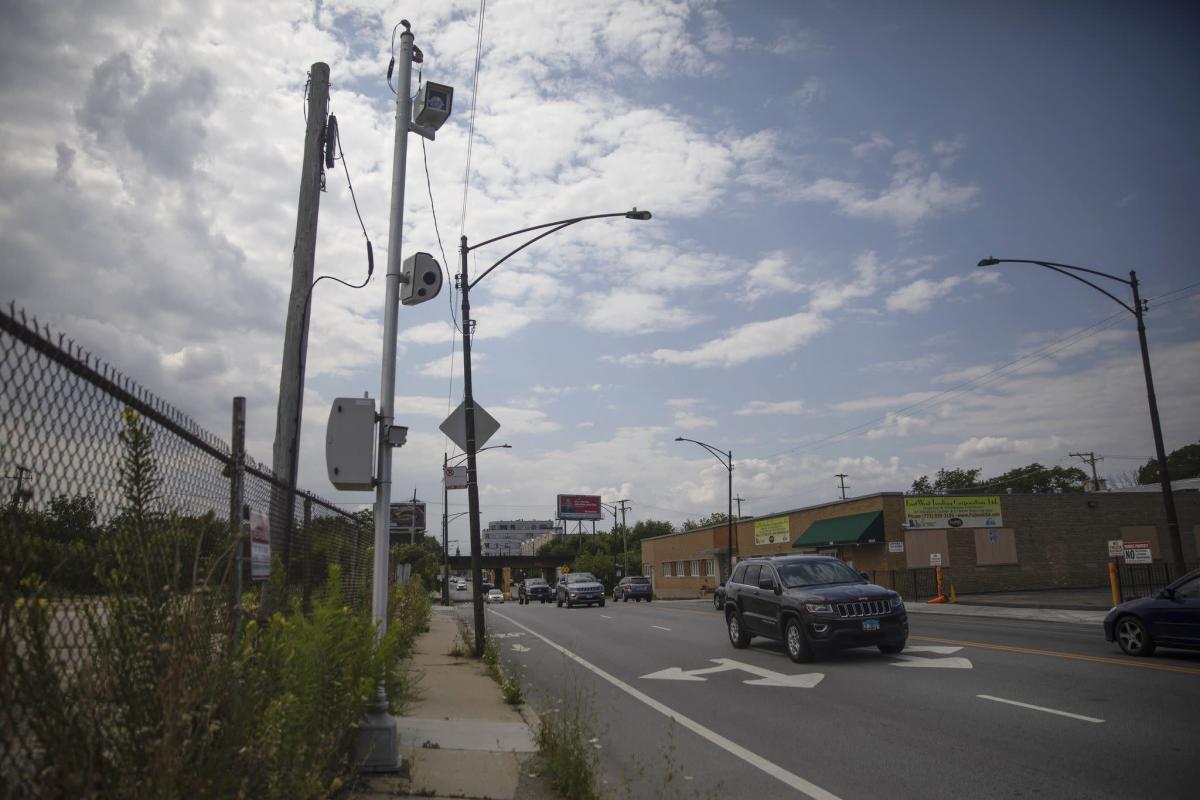One of the signature policies of Chicago Mayor Lori Lightfoot — drivers caught by automated speed cameras going just 6 mph over the limit — will be tested Tuesday by councilors who want to roll it back.
City council finance committee to vote on mayoral critic Ald. Anthony Beale’s proposal to reset the speed camera ticket and raise the threshold to 10 mph above the speed limit, as it used to be.
The committee debated the plan last week, but amid much sharp criticism of the Lightfoot standards, committee chair Ald. Scott Waguespack adjourned the proceedings, without a vote, until Tuesday. That led supporters of the Beale Ordinance to argue that Waguespack bought the mayor time to gather votes to defeat it.
Lightfoot lowered the speed limit as part of its 2021 budget, arguing it would make city streets safer and saying it wasn’t doing it to raise more money. Although she campaigned for a pledge to end Chicago’s “addiction” to fines and fees, the mayor said safety-related issues such as speeding deserve tougher enforcement.
Nevertheless, the new standards have proved lucrative and have spawned loud rebukes from Beale and others who claim the mayor is trying to balance Chicago’s books on the backs of poor and working-class residents who can barely afford the new $35 tickets every time they get caught. .
Sign up for The Spin to get the top stories in politics delivered to your inbox on weekday afternoons.
The city sent more than 1.6 million of the $35 speed cameras in 2021, though Lightfoot’s new rules didn’t go into effect until March. In the first two months alone, the city handed out $11 million in fines to those caught going 6 to 10 mph, a Tribune investigation found. Nearly 900,000 warnings were also sent to drivers caught speeding from 6 to 9 mph in the month before the lower threshold began.
Drivers also pay $35 if the cameras catch them speeding 10 mph over the limit, and $100 tickets will go out to those caught 11 or more mph too fast. Mayor Rahm Emanuel set those guidelines for the speed cameras in safety zones around parks and schools, and the Beale ordinance would reverse that.
It would be rare for Lightfoot to see such an important initiative reversed, but councilors will be up for re-election early next year – as will the mayor himself – and this vote puts them in a difficult position.
The cameras will be installed around parks and schools where there are likely to be more walkers, cyclists and children. And while pedestrian and bicycle safety organizations tend to support the minimum of 6 mph tickets because they encourage motorists to slow down, many Chicago drivers hate yet another example of the city eclipsing them and councilors complain that the cameras often don’t really do that very close to schools or parks.
Lightfoot included the change in its massive 2021 budget package so councilors didn’t have to vote on it specifically at the time. Now they are being forced to take sides on a divisive issue not long before many of them face voters.
If Finance approves the Beale Ordinance on Tuesday, the full City Council would consider it on Wednesday.

